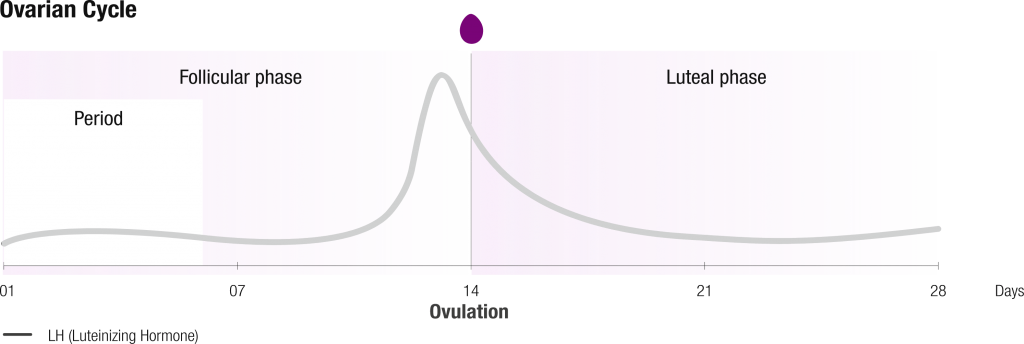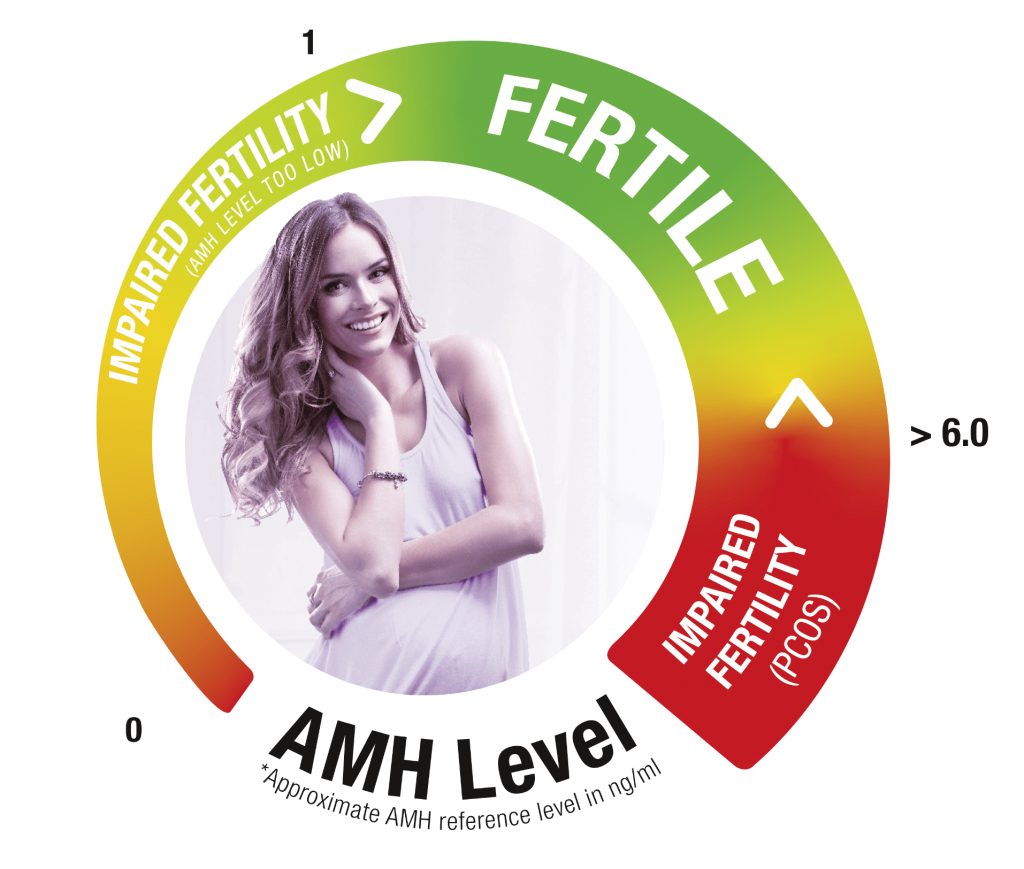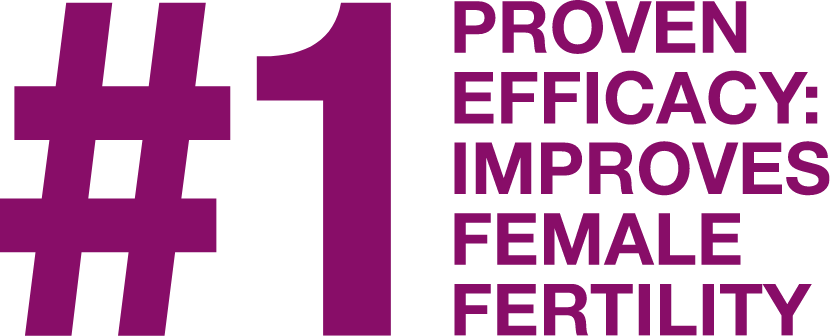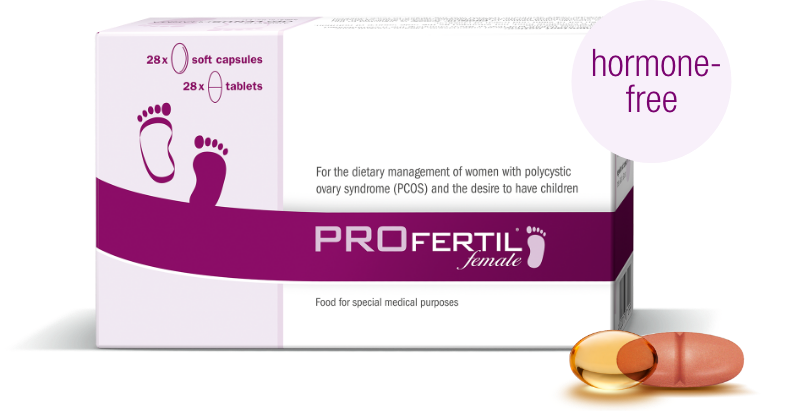
Age-related
factors (AMH)
Support of healthy follicle maturation and regular ovulation
Desire to have children when fertility is already declining?
In the western world, there is an increasing trend towards late motherhood. However, a woman’s fertility naturally declines with age. The main reason for the decline in fertility is that the number of eggs is continuously decreasing.
The so-called ovarian functional reserve (FOR) can provide information on whether there are enough eggs available in the ovaries for natural or artificial fertilisation. The number of follicles visible on ultrasound (follicle monitoring) and the AMH value are used to assess the ovarian reserve.
The number of eggs a woman can use in her lifetime is determined at birth. This means that the supply of eggs is limited and decreases with age. These primordial follicles (= primary follicles) will be needed later, and not just one per month. A larger number of follicles (= cohort) mature in each cycle. A dominant follicle (= ovarian follicle) is selected from this cohort. This ovarian follicle develops into a mature follicle. Finally, ovulation occurs in the middle of the cycle.
In the best case scenario, an egg capable of fertilisation grows every month. A regular cycle with ovulation forms the basis for successful fertilisation by the man’s sperm cell and subsequently increases the chance of pregnancy.
Oxidative stress
The oxidative stress in the ovaries increases as women age and is triggered by an excessive amount of free radicals in the human body. In combination with a weak defence system (lack of antioxidants), this leads to faster aging of the ovaries and thus has a negative effect on the egg reserve.
PROFERTIL® female protects the ovaries from oxidative stress and helps to slow down ovarian aging in women over 35. This supports healthy follicle development and regular ovulation.
A regular menstrual cycle and ovulation demonstrate the antioxidant effect of PROFERTIL® female in the ovaries.

(AMH) Anti-Mullerian hormone
Anti-Mullerian hormone (AMH) is a reliable marker of ovarian functional reserve in women of the age of 35+. It is a hormone that is produced by antral (immature) follicles in the ovaries.
By determining the serum AMH value, a kind of prognosis can be made as to how long a woman can possibly take to fulfil her desire to have children or, conversely, how soon she should devote herself to her desire to have children. In a clinical study with women over the age of 35, it was shown that taking PROFERTIL® female for three months can increase AMH levels.
In addition, a positive influence on the thickness of the uterine lining was demonstrated, which is an important prerequisite for the implantation of the fertilised egg.

Good to know:
During PCOS, an AMH level may be elevated.


